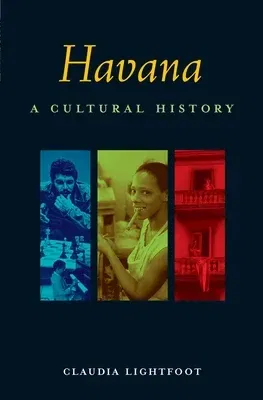From its humble birth as a few thatched huts along the shoreline, Havana
has emerged from five hundred years of turbulent history as the most
fascinating city in the Caribbean. Spain's "Pearl of the Antilles" was
in turn plundered by pirates, invaded by foreign fleets and then turned
into a Mafia-run playground under U.S. tutelage. Since 1959 the seat of
Fidel Castro's revolutionary regime, Havana is now shaking off forty
years of blockade to face the new challenges of mass tourism. A city
whose fabric has always been threatened by hurricanes and political
upheaval, Havana has developed a wild edge, an energy and an alluring
exoticism that have intrigued and enchanted visitors as diverse as
Alexander von Humboldt, Anais Nin, Lorca, and Sartre. Claudia Lightfoot
explores Havana's history and its paradoxes: a city where architectural
treasures survive among crumbling tenements; where a vibrant street life
takes place amid shortages; where revolutionary politics, machismo, and
a thriving black market co-exist against a background of salsa,
gritería, and baseball. - The city of architecture: fortresses,
mansions, and Art Deco exuberance; baroque facades and balconies; an
eclectic cityscape. - The city of politics and exile: the colonial and
neo-colonial years; wars, dictators, and revolution; José Martí and Che
Guevara; the diaspora and the dream of Miami. - The city of literature,
art, and music: Carpentier, Lezama Lima, and Cabrera Infante; passion
and irony; Graham Greene and Hemingway; Wilfredo Lam and Nelson
Dominguez; Afro-Cuban roots; salsa, rumba, son, and rap.

